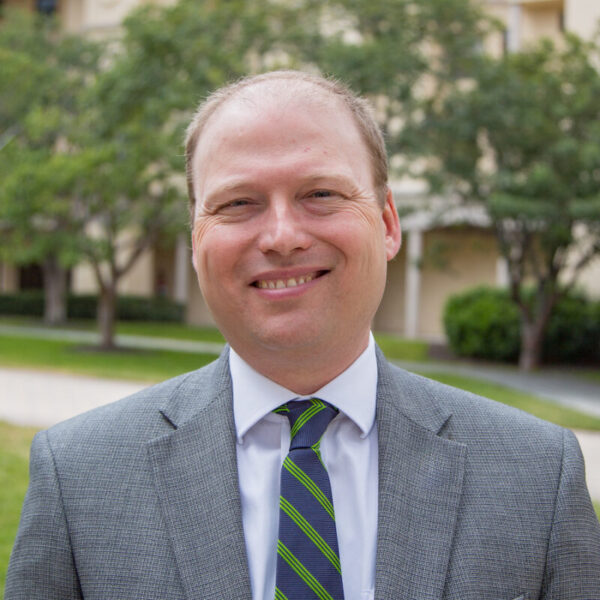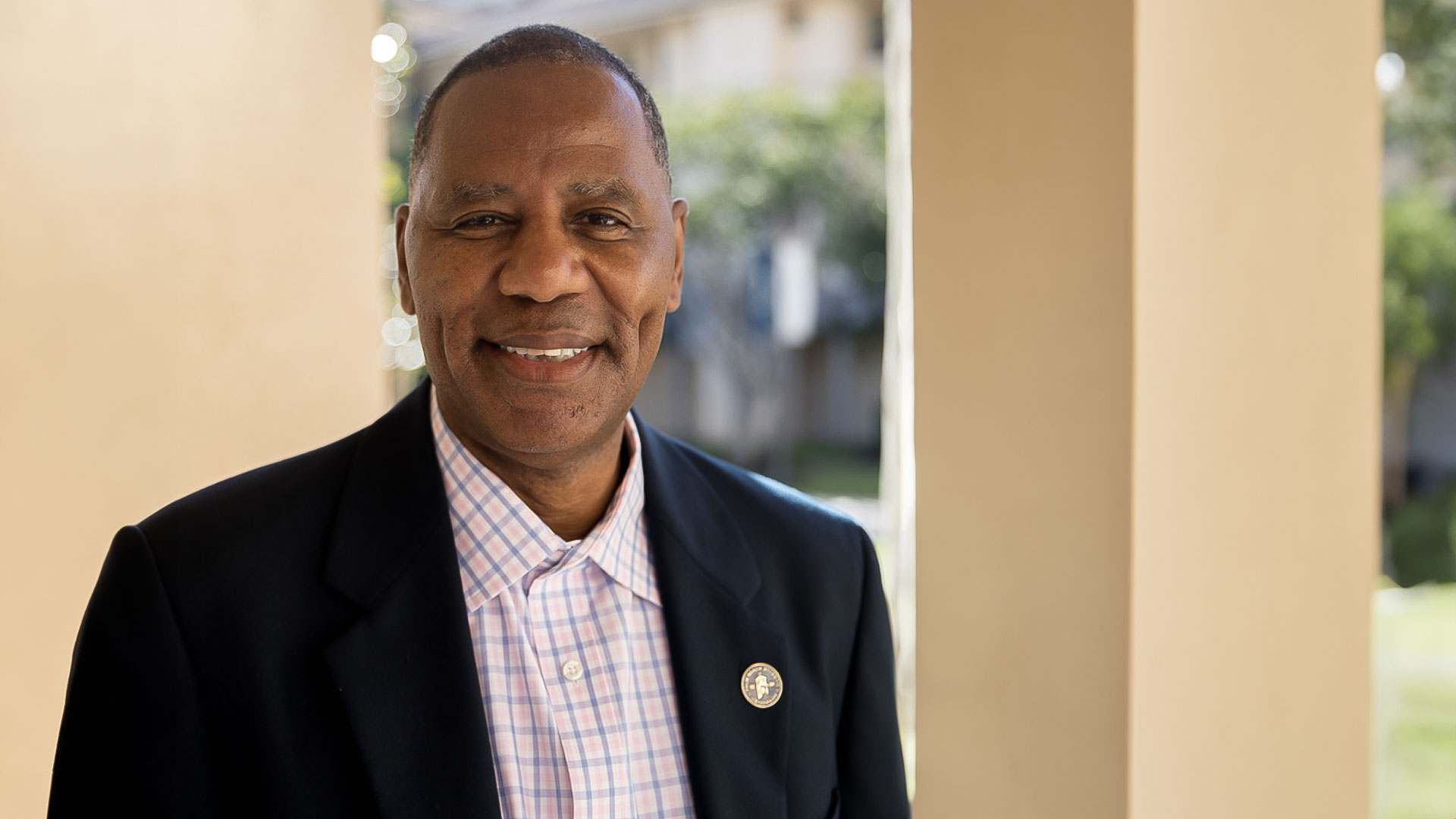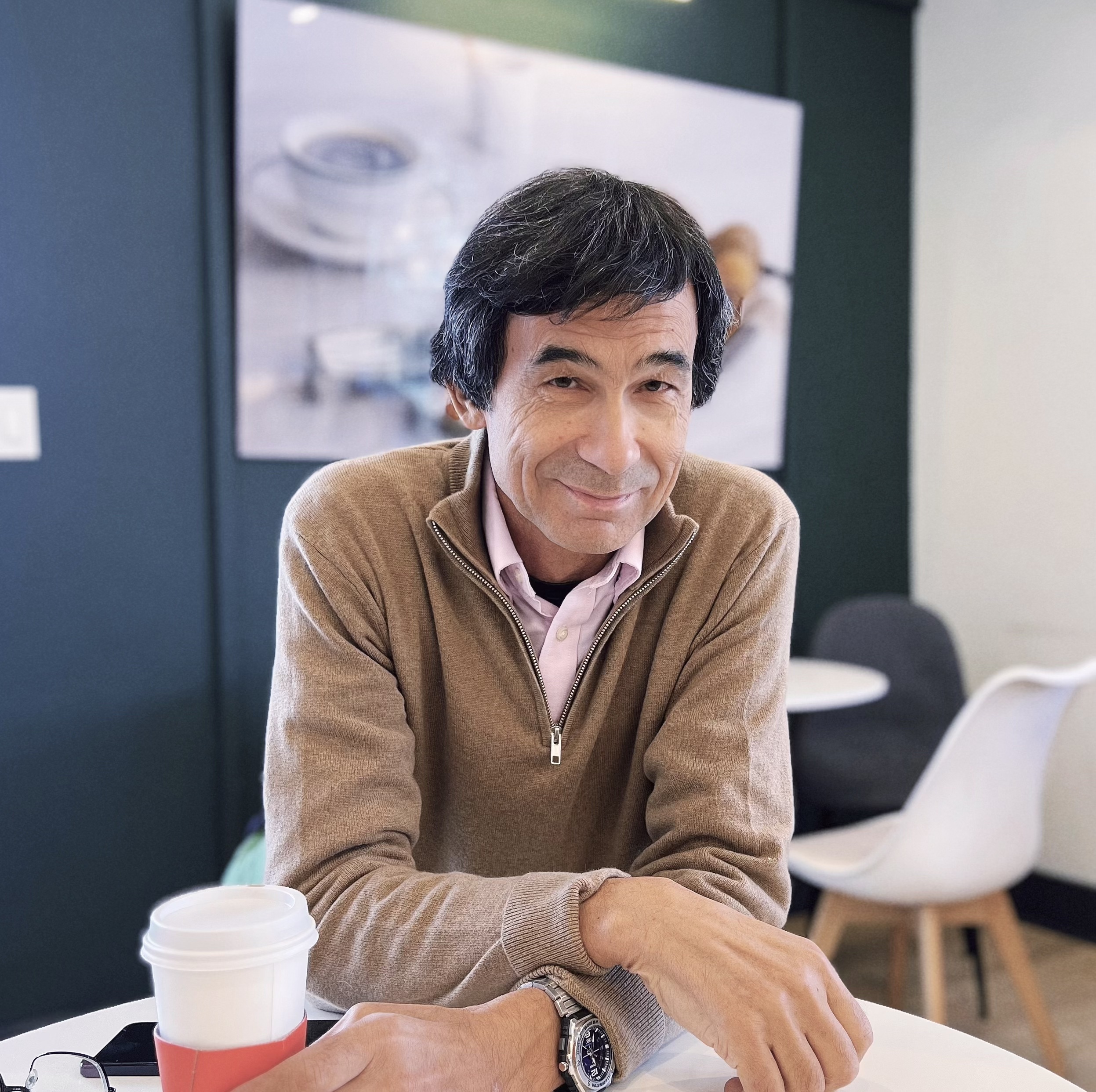In a dynamic talk that spanned abolitionists to modern activists, Dr. Terriel Byrd traced African American trends and diversity of thought within academia during a Tuesday lecture.
Byrd’s history lesson for faculty and staff was the fifth lecture in a series on the Christian university. The series’ purpose was two-fold: to carry on the conversation about what it means to be a Christian university and to foster interdisciplinary conversations, said Dr. Nathan Lane, associate provost for instruction.
Byrd encouraged his faculty peers to draw on the expertise of African American scholars in nearly every field of study, particularly when they are assigning texts.
“It’s important that those of us who are in the academy extend our research to reflect different voices,” Byrd said.
Byrd’s experience growing up in a small, Midwestern, rural town and as a young, African American professor looking for role models inspired what he wanted to discuss, he said. The professor of urban Christian ministry came to PBA in 1999 after serving as a pastor in Cincinnati, Ohio, and teaching all over the world. He has published books on racial separation in worship, social issues facing the church and interpretation of Dr. Martin Luther King Jr.’s message.
Over the course of an hour, Byrd charted the contributions two dozen African American thinkers have made to politics, history, social activism, the arts and theology from 1956 to present. He realized early on that “not all black folk think alike,” he said, drawing an “Amen” from the audience.
For example, Booker T. Washington, an adviser to President Teddy Roosevelt, was beloved by Southern whites because he was willing to work with the society or system, no matter how terrible it was. No one was more respected until W.E.B. DuBois – Washington’s opposite – came along, Byrd said.
Du Bois was a historian and Pan-Africanist, a person who believes everyone of African descent has common interests and should be unified. Some varieties of Pan-Africanism call for all people of the African diaspora to move to a unified African state. Personally, Du Bois joined the Communist Party, renounced his citizenship and moved to Ghana, West Africa, where he died in 1963. The problem with the “back to Africa” movement was that many black people living in America at the time had never been in Africa, Byrd said. They were descendants of those who were brought as slaves in the 1600s, Byrd said.
After Du Bois came people like Elijah Poole Muhammad. Muhammad, the son of former slaves, became the leader of the separatist Black Muslim movement, “a fringe Muslim group,” Byrd said. Poole changed his name to Muhammad and dedicated his life to the sect, also known as the Nation of Islam, after hearing its founder speak about Islam and black empowerment. Muhammad was an early mentor to Malcolm X.
Malcolm X was a prolific speaker with a dynamic ability to persuade people to his worldview, Byrd said. He split off after a rift with Mohammad. He was fatally shot leading a rally in Harlem, but his ideas continued in the Black Power Movement.
Du Bois was a similarly transformational leader who felt that Booker T. Washington didn’t give enough hope to blacks to become self-determined. He wanted to rally the black community so that they could get the vote and an education. Du Bois was the first African American to earn a doctorate from Harvard University, but his career opportunities were limited because of his race, Byrd said.
Abolitionist Sojourner Truth, on the other hand, dictated her memoirs to a friend because she could not read or write. She was a former slave who wanted to travel the world speaking the truth, Byrd said. She advocated for abolition, temperance and civil and women’s rights in the 1800s.
Most black writers and artists since the Harlem Renaissance use their art forms to talk about “a liberation of their condition,” Byrd said. The renaissance was an explosion of the African American creative arts in the Harlem area of New York in the 1920s that was catalyzed by a migration from rural areas to cities.
Byrd referred to contemporary cultural critics such as bell hooks, whose scholarly work examined perceptions of black women and feminism, and Cornel West (a “brilliant, brilliant mind”). He also touched on theologians such as Dallas-area pastor Tony Evans, founder and senior pastor of the 10,000-person Oak Cliff Bible Fellowship, founder and president of The Urban Alternative.
Byrd then took questions, including one about a division of churches along racial lines.
“We have sometimes tried to cover the wounds, and uncover the wounds before they’re healed,” he said. “To say ‘black church’ and ‘white church’ is an insult to Christianity.”


